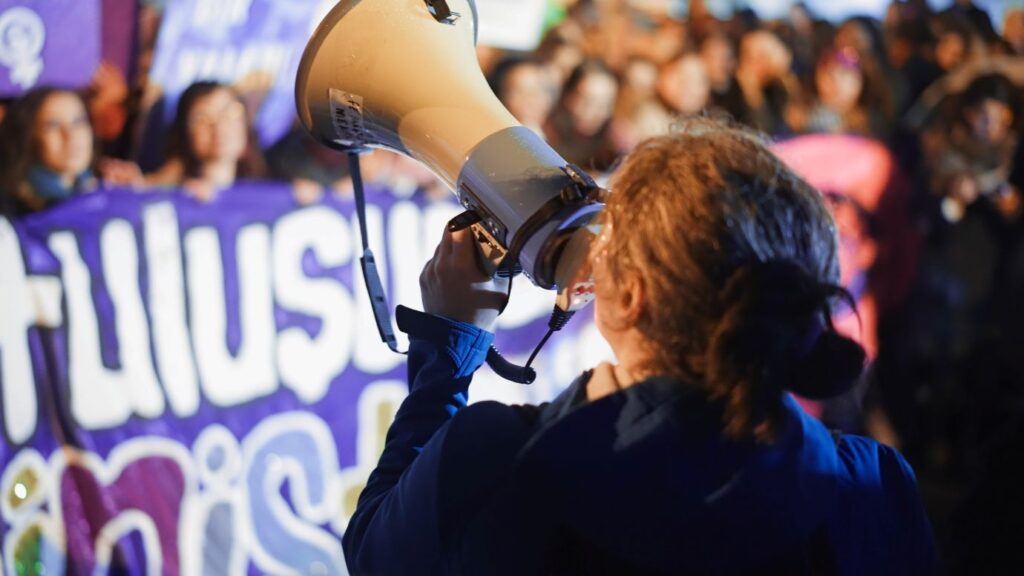Each year, the 16 Days of Activism against Gender-Based Violence sets the tone for a global reckoning with one of the world’s most enduring human rights crises.
In 2025, the international campaign centres on the theme “UNiTE to End Digital Violence against All Women and Girls,” drawing urgent attention to the rise of online abuse, image-based violence and other forms of technology-facilitated harm.
In Australia, this global call is echoed and expanded through local campaigns such as Safe and Equal’s “Changemakers” and Respect Victoria’s “Respect Is…”, which emphasise action, accountability and the cultural change needed to prevent violence before it occurs.
Together, these global and Australian themes send a unified message: ending gendered violence means confronting both emerging digital threats and the everyday attitudes and systems that allow harm to flourish in homes, workplaces and communities. And still, the facts burn.
Globally, the scale of gendered violence remains vast and stubborn. Recent WHO and UN partner data show nearly one in three women have experienced physical or sexual violence at the hands of an intimate partner or non-partner in their lifetime, a crisis that affects hundreds of millions and has changed little in two decades. The WHO’s 2025 reporting underlines the persistence of the problem and the enormous number of women whose lives are shaped by fear, injury and trauma.
Australia’s picture is grim and specific. National analyses and briefing papers show around 17 per cent of Australian women report having experienced physical and/or sexual violence by a cohabiting partner since age 15 and family, domestic and sexual violence remains a leading driver of homelessness, poor health and economic insecurity for women. Recorded homicide and police data continue to expose the lethal end of the spectrum that family and domestic-violence related killings make up a large share of intimate homicide. In Australia, to date in 2025, 62 women have died of family violence. These are not abstract statistics, they are mothers, daughters, colleagues, neighbours.
We must also broaden where we look. Gendered violence is not contained in bedrooms or bars; it is at work, in corridors of power, and online. Research across the Asia-Pacific demonstrates rampant sexism, harassment and psychological abuse of women in politics. Australian women working in male-dominated workplaces report bullying, sexual harassment and cultures that normalise disrespect. When workplaces tolerate aggression, explicit or coded, they sterilise complaint, they send younger women and girls a message that you either speak up and risk your career, or be silent and risk your safety.
For girls growing up today, there is a real risk they will inherit a world where gendered violence is normalised and increasingly politicised. When they watch women in public life being harassed into silence, when school-based consent and sex education is diluted, or when laws retreat on reproductive autonomy, the message they receive is chillingly consistent that your body and your voice are battlegrounds. This erodes aspirations, damages mental health and limits social participation. It also lays the groundwork for a new generation being asked, implicitly or explicitly, to accept less equality than the one before them.
And this is not happening in a vacuum as the 16 Days now sit within a broader, organised global anti-rights backlash. There are many studies in 2025 that document an emboldened “anti-gender” or anti-rights movement which is better funded, transnationally networked, and intent on rolling back reproductive rights, dismantling protections for LGBTIQA+ people, and attacking gender-equity initiatives. These campaigns don’t just chip away at policy, they reshape social norms, embolden harassers, and starve prevention work of resources. The rollback is already measurable in funding cuts and escalating online abuse of women in public roles.
The 16 Days should spark real, lasting change. That means making workplaces safe through enforceable sexual‑harassment laws, backed by government funding, independent reporting, and protections for anyone who speaks up. It means investing in early education that teaches consent, respect, and bystander action, so young people grow up knowing violence is never acceptable.
It means safeguarding reproductive autonomy and access to essential health services, which are critical to both safety and economic independence. And it means properly funding specialist support for victims and their children—shelters, counselling, legal help—so that leaving a violent situation is not just possible, but survivable.
The 16 Days should not be a calendar tick-box. It should be a launchpad for laws that protect, funding that sustains, education that prevents, and political courage that resists rollback. If we expect change, we must demand it from employers, from parliaments, and from our communities. For the sake of the women and girls who will inherit what we leave behind, “changemaker” cannot be a theme it must be a plan.


